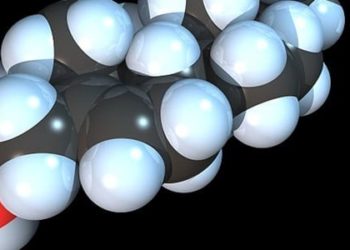Insclisiran significantly decreases LDL cholesterol in heterozygous familial hypercholesterolemia patients
1. Inclisiran, a small interfering RNA, therapy was shown to significantly lower levels of low-density lipoprotein (LDL) cholesterol compared to the placebo in adults with heterozygous familial hypercholesterolemia.
2. The reduction in LDL cholesterol levels, via inclisiran therapy, was shown to be similar to the reduction achieved with proprotein convertase subtilisin-kexin type 9 (PCSK9) monoclonal antibody therapy.
Evidence Rating Level: 1 (Excellent)
Study Rundown: Current pharmacologic management of familial hypercholesterolemia includes high intensity statins and monoclonal antibodies directed against PCSK9. Both therapies have been shown to reduce LDL cholesterol but require frequent dosing regimens. The ORION-9 trial evaluated inclisiran, a novel small interfering RNA therapeutic that also acts on PCSK9, in a large patient cohort of adults with heterozygous familial hypercholesterolemia who had been treated with a maximally accepted statin therapy dose. The study found a significant decrease in LDL cholesterol from baseline in the inclisiran group compared to the placebo group.
Of note, while the majority of the patients were also taking a statin and ezetimibe, the regimens across participants was not consistent. Furthermore, the combined effects of various statins, ezetimibe, and inclisiran on LDL cholesterol was not separately analyzed. Nonetheless, this study is strengthened by the diagnostic measures used to assess the effect of inclisiran on LDL cholesterol levels. For physicians, these findings provided evidence for another therapy for patients who have failed high intensity statins and do not want frequent dosing regimens.
Click to read the study in NEJM
Relevant Reading: Inhibition of PCSK9 with evolocumab in homozygous familial hypercholesterolaemia (TESLA Part B): a randomised, double-blind, placebo-controlled trial
In-Depth [randomized controlled trial]: This phase-3 randomized control trial enrolled 482 patients in a multicenter study from 46 sites in eight different countries. The inclusion criteria included adults (≥ 18 years of age) diagnosed with familial hypercholesterolemia based on genetic confirmation and an LDL cholesterol level of at least 100 mg per deciliter (mg/dl). The exclusion criteria included patients who had received PCSK9 monoclonal antibody therapy. The patients were randomized to the inclisiran therapy or placebo therapy in a 1:1 ratio. The primary outcome of the study was two-fold. First, the study determined the percent change from baseline of the LDL cholesterol level at day 510. Second, the study determined the time-adjusted percent change from baseline in the LDL cholesterol level between day 90 and day 510. The authors hypothesized that the inclisiran therapy would lower the LDL cholesterol level more quickly than the placebo group. Additionally, secondary outcomes included mean absolute change from baseline in the LDL cholesterol at day 510. Patients in the inclisiran group, collectively, experienced an LDL reduction of 39.7% (95% confidence interval [CI], −43.7 to −35.7) from baseline.. During the same time, patients in the placebo group experienced an 8.2% (95% CI 4.3 to 12.2) increase in LDL cholesterol. Taken together, the percentage change difference between both groups was 47.9% (95% CI, −53.5 to −42.3). In regard to time-adjusted percent change between day 90 and day 510, patients in the inclisiran group experienced a 38.1% (95%CI, −41.1 to −35.1) decrease compared to a 6.2% (95% CI, 3.3 to 9.2) increase in the placebo group. Finally, the mean absolute change at day 510 in the inclisiran group was a 59.0 mg/dl decrease (95% CI, −64.8 to −53.2) compared to a 9.9 mg/dl increase (95% CI, 4.1 to 15.8) in the placebo group.
Image: PD
©2020 2 Minute Medicine, Inc. All rights reserved. No works may be reproduced without expressed written consent from 2 Minute Medicine, Inc. Inquire about licensing here. No article should be construed as medical advice and is not intended as such by the authors or by 2 Minute Medicine, Inc.







